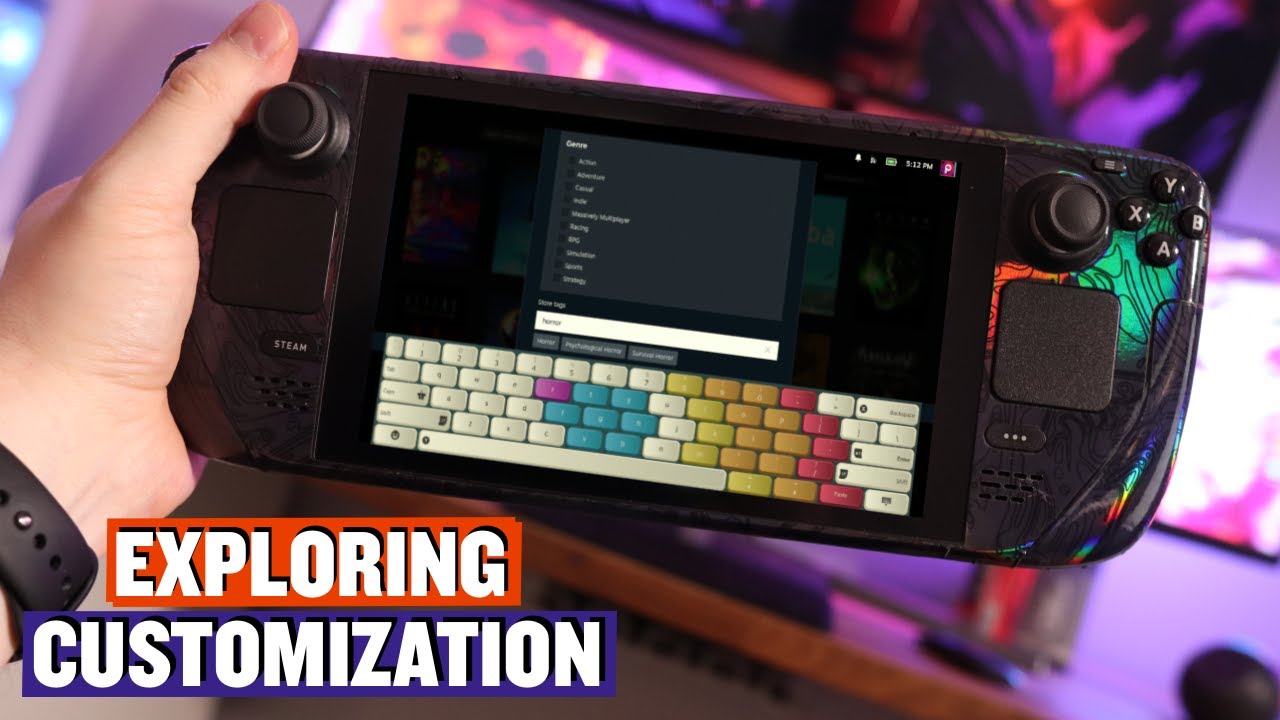The Steam Deck’s Handheld Fantasy: Surviving the Struggles of the Veil and Apex
As the portable gaming landscape continues to evolve, The Nomadic Gamer dives deep into the dual narratives that are shaping the handheld experience. On one hand, we explore the commendable performance of Dragon Age: The Veilguard on the Steam Deck, a game that not only captivates seasoned fans but also opens the doors of its expansive world to newcomers navigating the intricacies of role-playing on-the-go. On the other, we confront the challenges facing gamers keen to play Apex Legends on the same device, where recent decisions from Respawn Entertainment have cast a pall over that experience.
Gaming experiences on the go: a fusion of epic adventures and competitive play.
The Veilguard Experience on Steam Deck
Dragon Age: The Veilguard has managed to settle comfortably into our beloved handheld, the Steam Deck, promising to deliver an experience akin to consoles and PCs, albeit on a slightly scaled-down version of what might be achievable on more robust hardware. With a game design that is generously adaptable, players can truly immerse themselves in Bioware’s epic narrative while optimizing their settings for the best performance.
By combining low-textures with dynamic resolution settings and performance-focused FSR upscaling, players can consistently achieve frame rates breaching the crucial 30fps mark during active gameplay. However, as documented through gameplay experiences, cutscenes can dip alarmingly, plunging as low as 20fps at times, an experience one would not typically associate with the energetic saga of such a storied franchise.
The battery life of The Veilguard on the original LCD Steam Deck can thus be described as thirsty, with full depletion reaching the mark of just over an hour and a half, slightly trailing behind competitors like Baldur’s Gate 3. Yet, for those fortunate enough to possess the OLED variant, the HDR support brings a redefined vibrancy to the experience that enhances immersion immensely.
Optimizing Your Settings
Navigating the maze of settings may appear daunting, but refining the display to the Deck’s native resolution remains essential. Here’s a quick guide for optimal performance on your Steam Deck while engaging in the world of The Veilguard:
- Upsample method/quality: AMD FSR on Performance
- Render scale: 100%
- Dynamic resolution scaling: On
- Target frames per second: 30
- Minimum resolution scale: 83
It’s clear that a thoughtful approach to settings can help players maintain a smoother and richly rewarding gameplay experience, ensuring that they can fully dive into the compelling world filled with lore and adventure.
Experience the thrilling narratives of Dragon Age: The Veilguard on the Steam Deck.
The Downside: Apex Legends Exits Stage Left
While Bioware has delivered a commendable product for Steam Deck, the same cannot be said for Apex Legends. Recently, Respawn’s stance has cast a shadow over the vibrant gaming community that has enjoyed the battle royale on handheld devices. The developers have now decided to pull official support for Linux, which is the operating system that the Steam Deck runs on, tightening the reins on players wanting to engage in competitive play on this platform.
“In our efforts to combat cheating in Apex, we’ve identified Linux OS as being a path for a variety of impactful exploits and cheats,” explains Respawn in their announcement. This decision to block Linux OS access, they assert, aims to significantly reduce instances of cheating, albeit at the cost of marginalizing a segment of their player base who rely on the Steam Deck.
While some might argue that Apex Legends players predominantly engage on console or traditional PCs, a substantial fan base craves the casual gaming experience the handheld has enabled. However, the need to install Windows just to enjoy the game has deterred less tech-savvy players, ultimately relegating them to silence.
Competitive play no longer accessible for Steam Deck users without Windows.
Though Apex Legends remains popular, sitting comfortably within the top 50 played games on Steam in the last year, the move by Respawn is reminiscent of other major shooters eschewing support for the Steam Deck. As the player community processes this decision, a glimmer of hope still exists as Respawn has promised to continue efforts in anti-cheat technology development, hinting at potential resolutions in the future.
Bridging the Divide
As portable gaming embarks on new journeys shaped by emergent technologies and changing player preferences, titles like Dragon Age: The Veilguard offer hope and enjoyment within exquisite narratives and rich gameplay mechanics, illuminating what handheld gaming can achieve. Conversely, the withdrawal of support for Apex Legends serves as a stark reminder of the challenges ahead in balancing competitive integrity and accessibility.
The juxtaposition of these narratives illustrates a broader discourse on the future of handheld gaming, marking both triumphs and struggles. As we eagerly consume vibrant tales within immersive worlds, we can’t help but reflect on the importance of accessible gameplay, as we push forward into the uncharted territories of handheld gaming.
At the end of the day, the experiences on the Steam Deck are not merely about the games we play but also about the communities we nurture and the journeys we undertake through these shared digital realms. In the world of portable play, the key to success lies in resilience, adaptation, and the ongoing commitment to change.
What does the future hold for portable gaming? Only time will tell.
Wrapping Up
In conclusion, while the handpicked titles within the Steam Deck’s library shine like gems, shining a light that makes portable gaming lively, it’s essential for developers to remain committed to broad accessibility. The future is bright for RPGs and expansive fantasy experiences, but will likely remain challenging for popular competitive titles like Apex Legends. As avid gamers, we must advocate for the inclusivity that handheld devices promise. Let’s hope for a gaming landscape that continues to bridge the divide between formidable epic narratives and competitive play.













